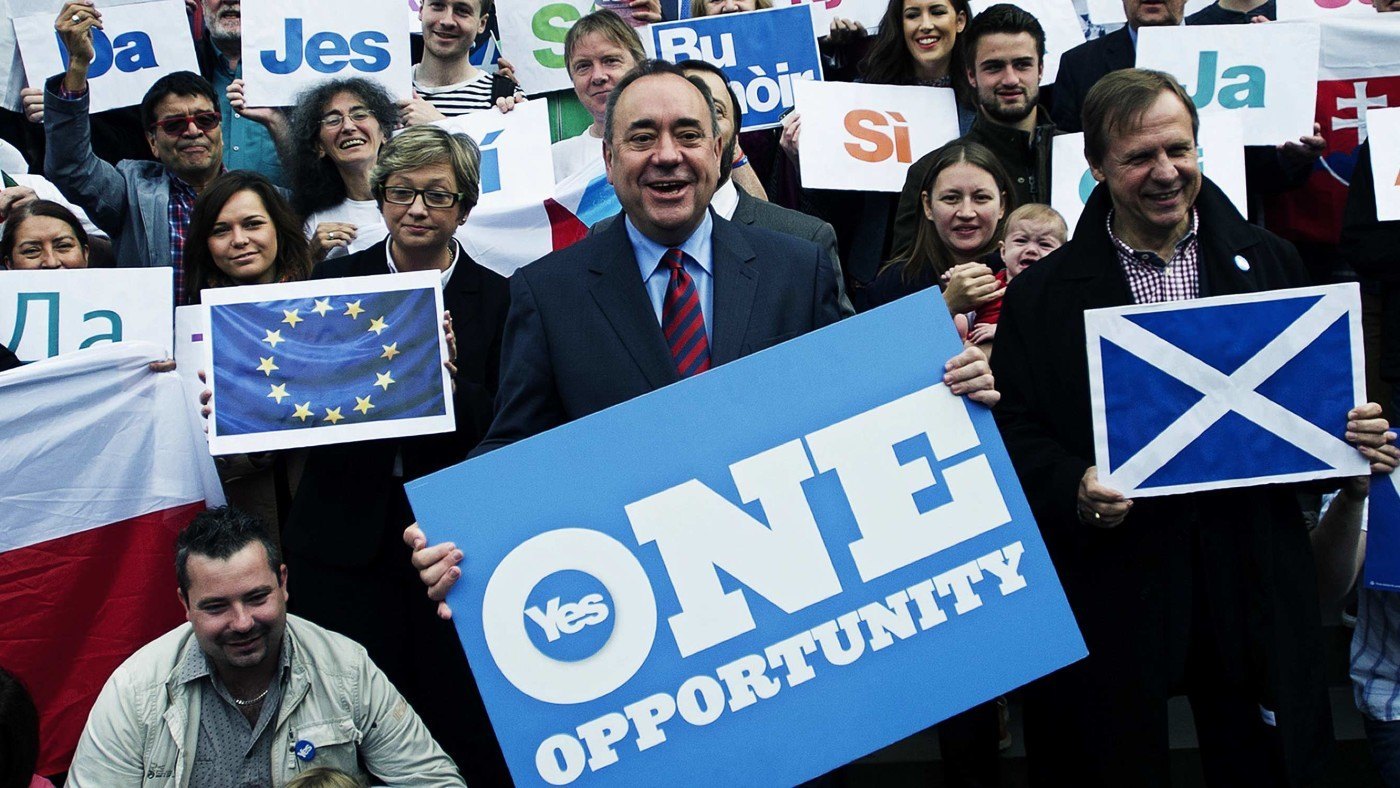A report from Barclays on the consequences of Brexit claims British departure would be more disastrous for the EU than for the UK. It also explodes the myth that Brexit would lead to Scottish independence, concluding that such would be the disintegrating effect of Brexit on the EU that Britain would be seen as a safe haven and Scottish voters would react by abandoning support for independence and nestling closer to a United Kingdom whose stability would contrast with the chaos on the continent.
That contradicts the central thesis of Nicola Sturgeon’s SNP administration that Brexit would “trigger” a second independence referendum, when Scots would overwhelmingly decide to throw in their lot with the EU and abandon a “sinking” UK.
That Brexit would destabilise the EU is axiomatic. After the contortions Brussels indulged in to keep basket-case Greece in the euro, were we seriously supposed to believe the EU would be indifferent to the departure of Britain, the best performing economy in the Union and a nuclear power with a permanent seat on the UN Security Council?
But it is the Scottish analysis that is most interesting. Forecasting that a number of EU states would be caught in the grip of political parties determined to leave the EU in the wake of Brexit, Barclays concludes: “In that environment, Scottish voters could be even less inclined to leave the relative safety of the UK for an increasingly uncertain EU.”
That makes perfect sense: Scots always put security before sentiment. But it turns received opinion on its head. First Minister Nicola Sturgeon has been beating the drum for a second independence referendum in the wake of Brexit for months now. Last July she told CNBC: “If the UK makes the decision to leave the EU and Scotland takes a different view, then inevitably I think people will think perhaps it’s time to be independent so that we can preserve our membership in the EU…”
What kind of “independence” movement claims its aspirations are dwarfed by membership of a United Kingdom of 65 million people, but promises freedom in a notoriously centralising and over-regulated European Union of 500 million?
In all other circumstances Sturgeon has a downright phobia about a second independence referendum, which she rightly believes she would lose. In her last party conference speech she set a minimum level of 60 per cent poll support for independence, for at least a year, as a precondition for a second plebiscite and she is currently under fire for not including a referendum in this year’s Scottish elections manifesto.
Brexit has become the sole trigger she would accept for a second referendum, but it looks as if she would shoot herself in the foot. Until now the Brexit/Scottish Independence thesis has been received opinion. It has been supported by such luminaries as Sir John Major, William Hague and EU high priest Herman Van Rompuy. Even as Barclays was publishing its analysis Tony Blair was telling French radio listeners that “if the United Kingdom votes to leave Europe, Scotland will vote to leave the United Kingdom”.
That is more than questionable. Brexit could condemn the EU to a lingering death. Even if it survived, would Scots want to join the euro currency, a requisite of renegotiated EU membership? What cards would Scottish negotiators hold? North Sea oil? Unless oil prices unexpectedly rocket, 140 fields in the North Sea are forecast to close over the next five years, even if prices return to $85 a barrel, with just 38 new fields expected to be brought on stream. Yet the SNP’s independence referendum manifesto was predicated on £7bn in oil revenue this year. Don’t hold your breath for Scotland’s second independence referendum.


